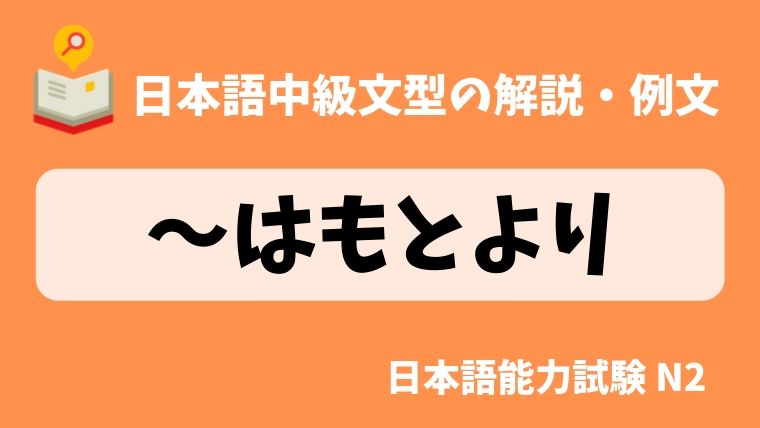解説:〜はもとより
●意味
“〜はもちろん・・・も / 〜と当然として・・・も”
自明の事柄や代表的な例を挙げ、それだけでなく〜もと述べたい時に使う。
“not only 〜 but also ・・・ / as well as 〜, ・・・”
This is used to give self-evident facts or typical examples, and to state that not only these but also 〜.
●接続
N + はもとより
●日本語能力試験(JLPT)のレベル
N2
●備考
「〜はもちろん」よりも硬い表現で、書き言葉・話し言葉の両方で使われる。
This is a more formal expression than ‘〜はもちろん,’ and it can be used in both written and spoken language.
例文
この本は受験生はもとより、英語を話せるようになりたいと思っている人にも読んで欲しい本です。
This book is highly recommended not only for students preparing for entrance exams but also for anyone who wants to improve their English speaking skills.
大阪マラソンには日本人はもとより、たくさんの外国人の方も参加されます。
The Osaka Marathon attracts not only Japanese participants but also many people from other countries.
このカバンはデザインはもとより、機能性にも優れている。
This bag excels not only in design but also in functionality.
日本の会社で働くには日本語はもとより、日本の文化や習慣なども理解しておく必要がある。
To work at a Japanese company, you need to understand not only the Japanese language but also Japanese culture and customs.
うちの祖父母はスマホはもとより、パソコンも使うことができません。
My grandparents cannot use not only smartphones but also computers.
私は海外はもとより、自分の住んでいる県から出たこともありません。
I have never been abroad, nor have I ever left my home prefecture.
志望大学に合格できたのは先生はもとより、日本語の勉強を手伝ってくれたクラスメートのおかげだと思っています。
I believe that I was able to pass the entrance exam for my desired university not only thanks to my teachers but also to my classmates who helped me study Japanese.
品質はもとより、低価格で早く生産できるよう改善していく必要がある。
It is necessary to improve not only quality but also to produce quickly at a low cost.



